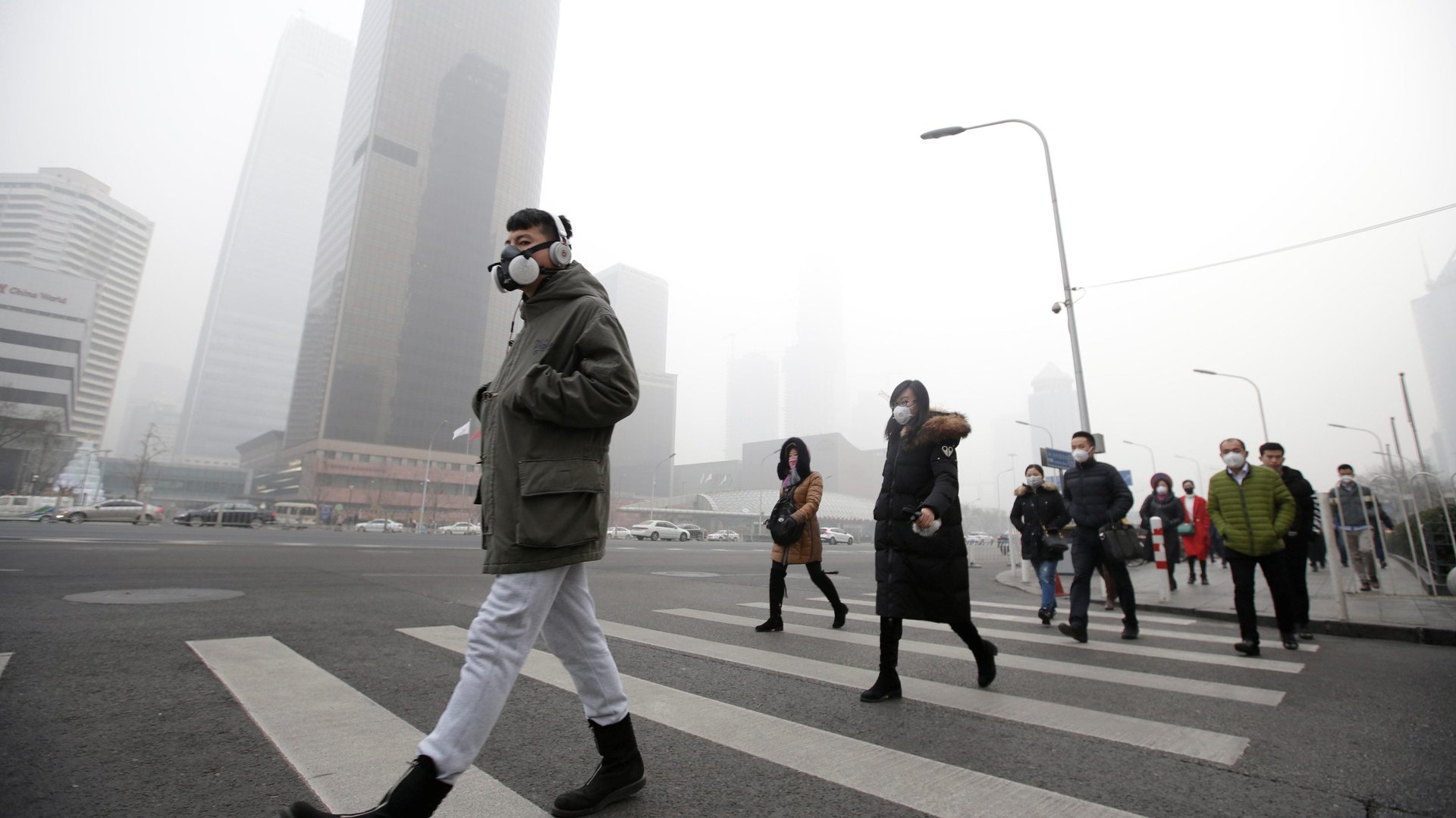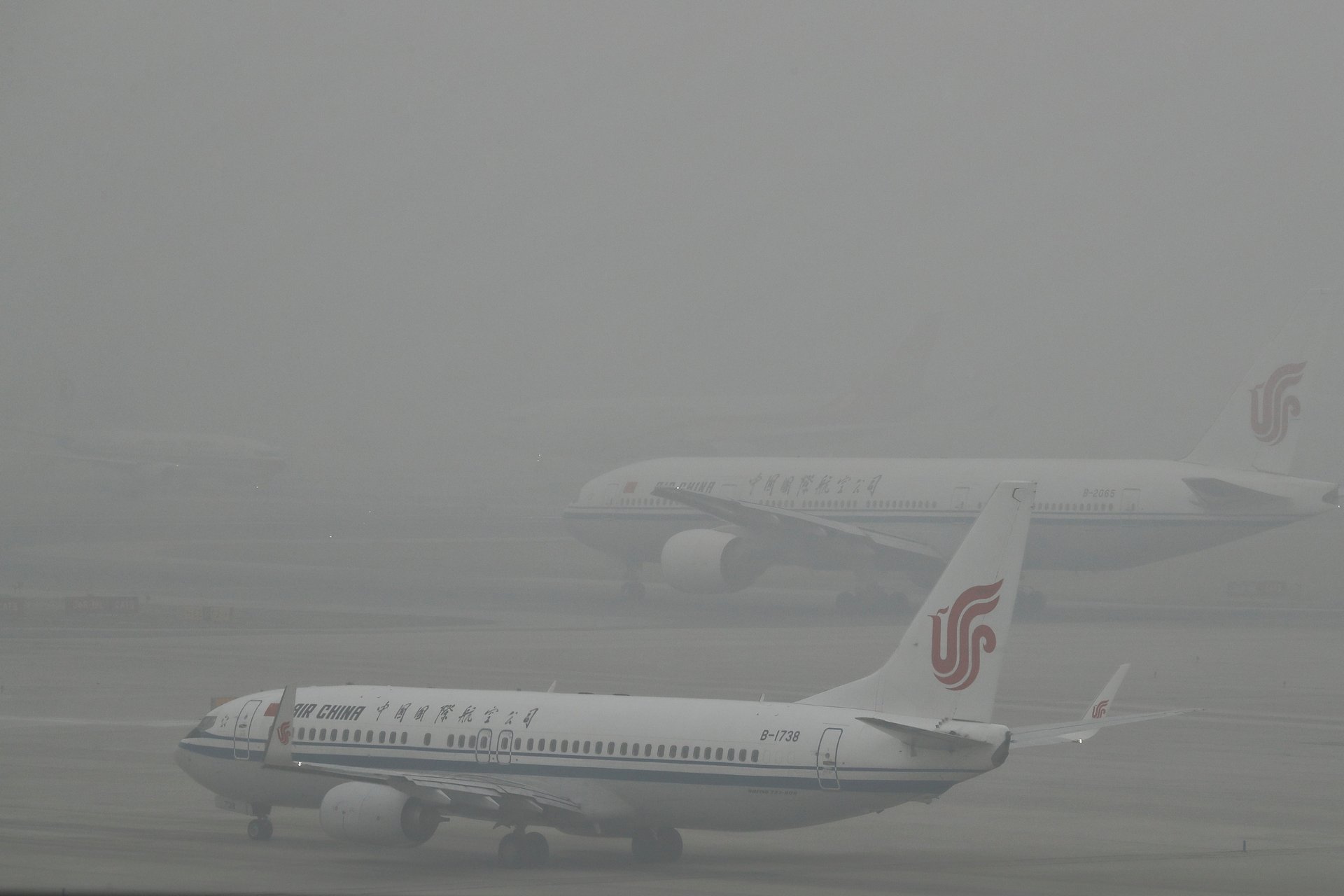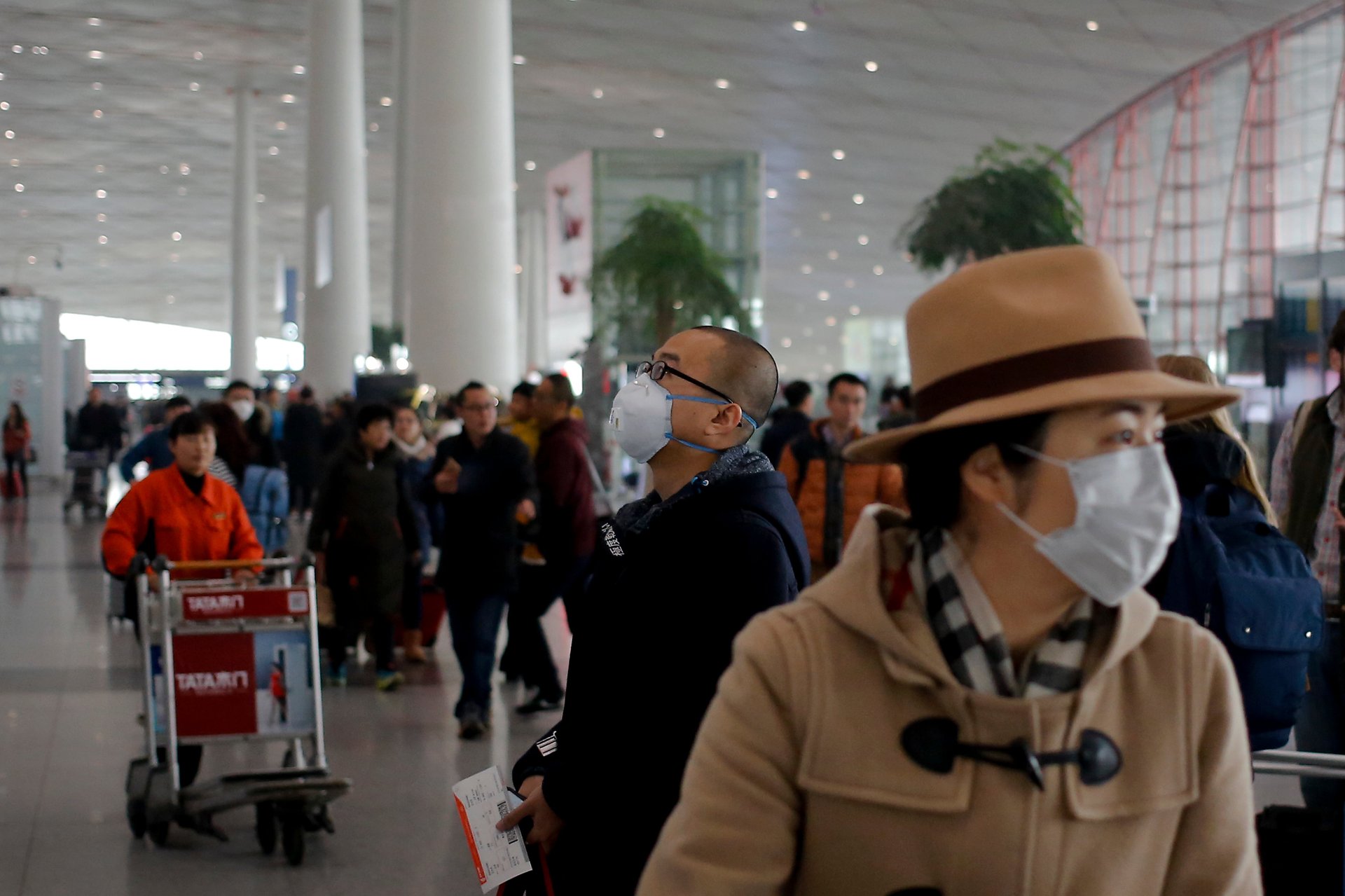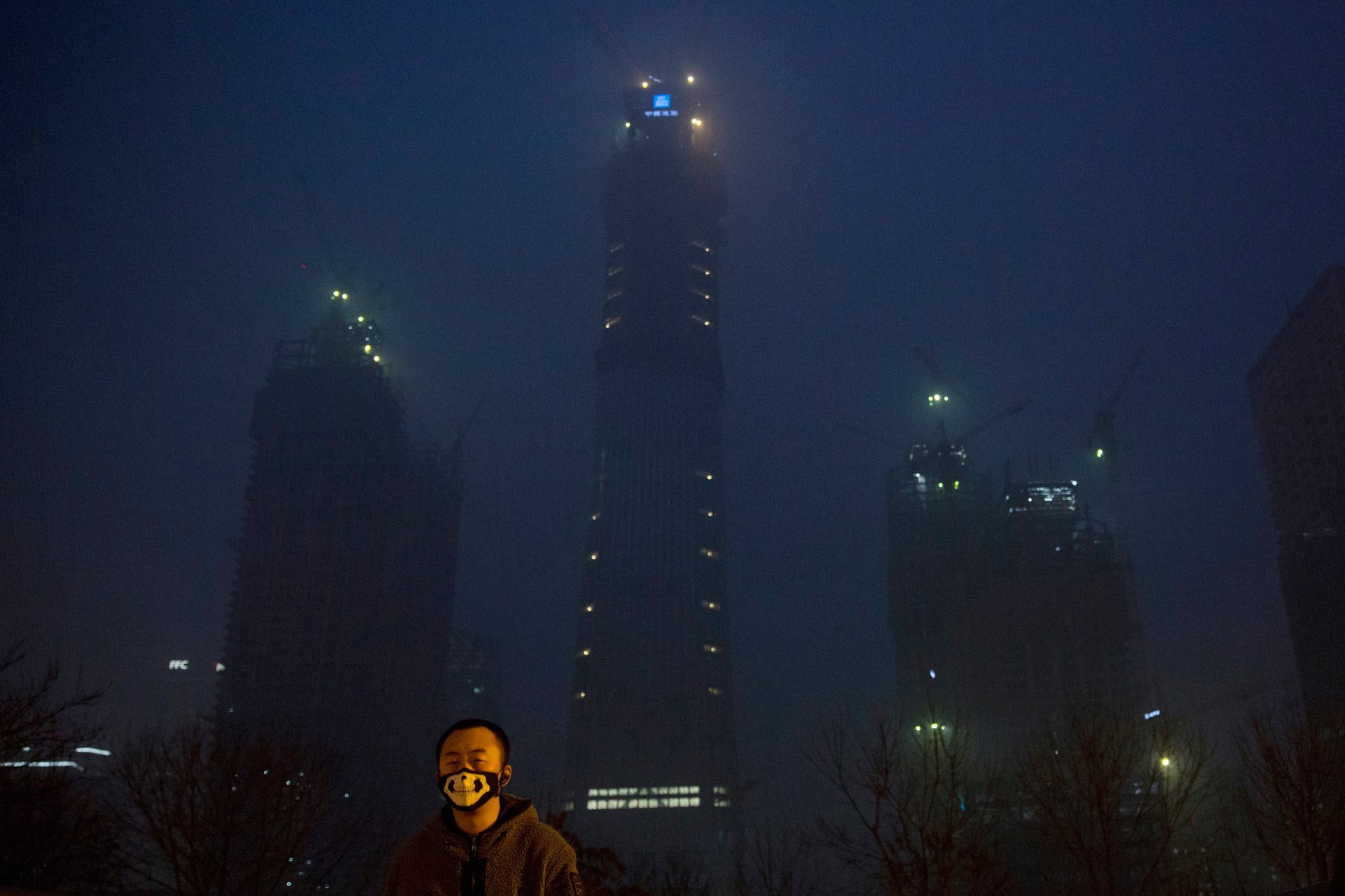Beijing is finally breathing a sigh of relief after a week in hell
The toxic air that’s shrouded Beijing in a haze the past week has finally subsided.


The toxic air that’s shrouded Beijing in a haze the past week has finally subsided.
At midnight on Dec. 22, the Beijing Municipal Environmental Protection department lifted (link in Chinese) its red alert, the country’s highest pollution warning. At the time, the Air Quality Index was still at 466, a hazardous level, according to Beijing Air, which monitors pollution levels and is not associated with the government.
The red alert, Beijing’s first of the year, went into effect at 4:30pm on Dec. 16. As of noon local time on Dec. 22, the air quality, at 72, was considered “moderate.” Chinanews, a state-owned news organization, however said that “Beijing air quality overall went back to excellent level.”
Since the red alert went into effect, many Beijingers found themselves trapped as smog restrictions cancelled flights and closed down roads.



The month of December is often when pollution peaks, as the city burns more coal to heat homes and businesses. The city was finally rescued by cold air, which blasted down from the north and blew away (link in Chinese) the choking smog, according to Chinanews.
Though people can breathe a sigh of relief, some remain upset. “To tackle the pollution you rely on God’s wind,” commented (link in Chinese) a Shanghai-based China’s social media Weibo user. “Looks like an easy way to govern the country in this way.”